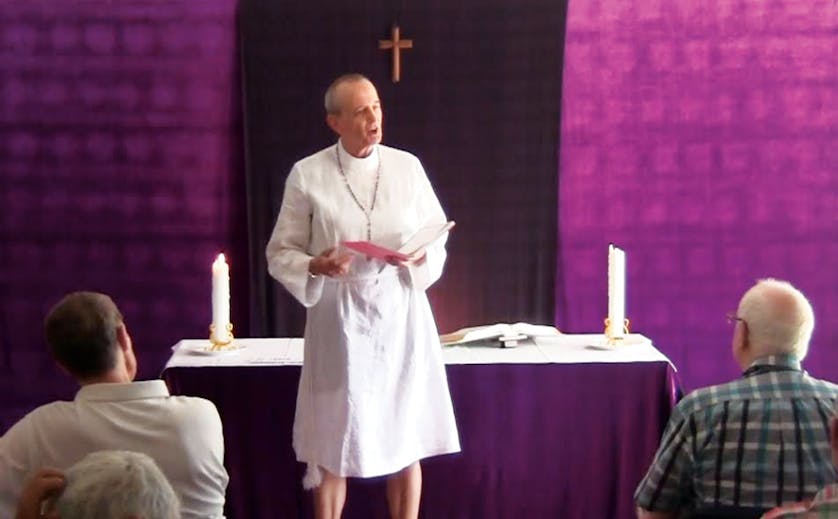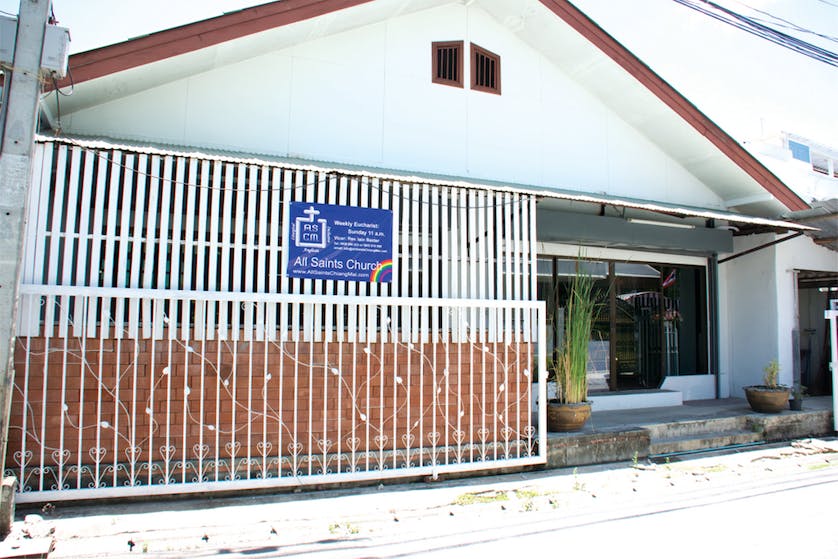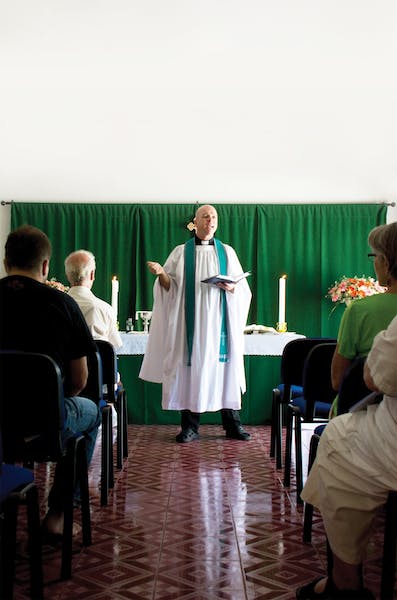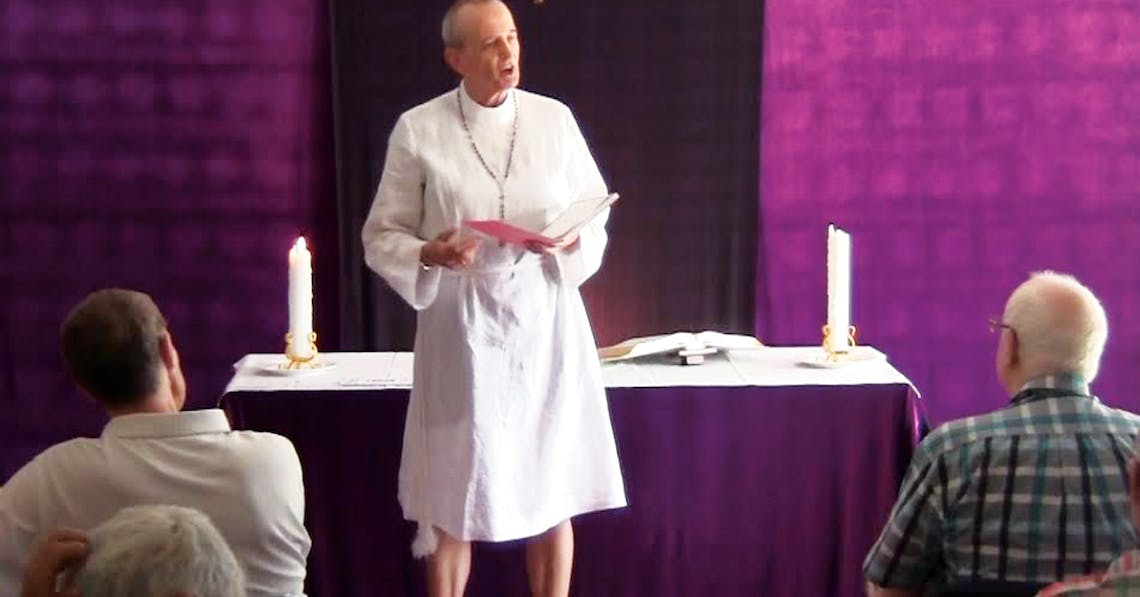Matters concerning gender and sexual orientation have not been easy for the Christian Church. The church is still divided on what’s fundamentally the right way to be, just as sections of the hoi polloi – after all this so-called cultural modernisation we’ve ostensibly embraced – still denounce or renounce the way some people just are. It’s a sin, say some denominations such as the Evangelical Covenant Church, concerning homosexuality; while the Roman Catholic Church has merely called being gay a ‘moral disorder’ that is part of the devil’s wicked scheme. And while some progressive measures have been taken in the name of LGBT rights and the church, such as an actual ‘Inclusive Church’ being formed; the acceptance of gay marriage (notably, recently in Ireland), or denominations forming their own branches of the church that are more in tune with human rights, it looks like in many good church-goers’ eyes you are destined for an afterlife in the eternal fire simply for loving or lusting after someone whom they say you shouldn’t.

That’s not the case at one church in Chiang Mai, a place of worship which believes in inclusion and enthusiastically embraces LGBT rights. All Saints Church, located in a modest house that could be a community centre, was opened two years ago by Reverend Iain Baxter. The present assistant minister is Elena Kelly. Baxter and Kelly are currently giving sermons to around 30-40 people every Sunday. The doors are open to anyone regardless of whether you’re a devout Christian, agnostic, Buddhist, gay, straight or unsure. Baxter and Kelly’s personal lives as Christians, before as well as after being ordained, have met with prejudice and intolerance from time to time. As ministers they have supported human rights, the right for anyone to worship the creator, to serve Him, while espousing the uncomfortable notion for some members of the church: that we are all equal in the eyes of God.
British born Baxter explained to Citylife how he thought that Chiang Mai needed another church, even though there are already about ten English-language churches and maybe 2,000 missionaries in the city. He wanted to open a less conservative church, with traditional services, consisting of communion and hymns, to all denominations, as well as non-Christians. “We don’t preach hell,” he says, “everybody will be with God.”

Baxter was ordained in Cairo at the Open Episcopal Church; his second attempt – he was told at the age of 26 that he was not yet ready by the Methodist church when attempting to become a minister. With hopes of becoming a man of the cloth one day he decided to first travel and spent time overseas teaching physics, while still attending church regularly. as a Christian who openly supports LGBT rights and equal rights – in 2008 he was interviewed by the press after speaking out in support of three African Bishops who refused to condemn torture – he has experienced certain amounts of ill-will on his travels. “A pastor banned me from a church in Spain,” he says, adding that in Egypt he was “pushed out”. “There were death threats,” he says, “malicious, toxic…I was afraid.” In Egypt he says that these threats were not issued by locals, but came mostly came from Americans.
In Chiang Mai he has also heard of such intolerance towards gays, telling me that when one church found out that two members of its congregation were homosexual they were asked to leave. So Baxter envisioned a more inclusive place to embrace God and decided to open his own church. “No one came,” he says, at the start when he and one other person started All Saints. But little by little streams of folks, families and singles, old and young, gay and straight, Thai and foreign, came to worship where hell and intolerance didn’t exist. One of those people was Elena Kelly.

“I was bullied at school, my nose broken. I ran away twice,” says Kelly. In the 9th grade she started using drugs as an anodyne to a difficult childhood. At a later date she joined the U.S Navy, and then attended what she calls the “very conservative” Bob Jones University, a private non-denominational Protestant university in the US renowned for its fundamentalist attitude towards sexuality and in the recent past, interracial dating. If All Saints is inclusive, Bob Jones University could be said to be fairly picky about who it accepts…and that’s an understatement. Kelly is a BJU alumna the institution would like to forget. The university, in spite of her holding a degree, has since disowned her. “They have denied I was a student,” she says, seeming phlegmatic about it now.
Born in what she describes as literally the middle of nowhere USA, she was introduced to the church as a small child after her grandfather built one of two churches in the farming community in 1911. She refers to God not as her Father, but as her Mother. Ordained in Greenville, California, she started her own church, which grew to quite a large size with a congregation of about 200 people each Sunday. The church was started in a daycare centre, and soon became a place where people with HIV/AIDS could find support, many of whom had substance abuse issues. Kelly was sympathetic to the challenges some of the LGBT community faced, “they started calling me the AIDS minister,” she says, explaining that, “if anyone had HIV or AIDS they called me. In the first year I performed 44 funerals and zero marriages.” Before moving to California Kelly met a survivor of Auschwitz, and because her church expressed sympathy towards the survivors of the Holocaust, she inspired the hatred of a white supremacist group who in the final straw of a hate campaign against her fired shots at Kelly’s house windows with a deer rifle. And so on she went.
In Chiang Mai both ministers hope to not only put some more of the negative aspects of their past behind them, but embrace equality under the church’s name, and so helping others to find some kind of spiritual love without all the often nasty baggage that can attend this quest. “God made noon and midnight, but also the dawn and dusk; shades of light. And God made people the same way,” says Kelly as a way to define her spiritual philosophy.
Of those denominations that refuse to believe in this all-embracing spirituality, for example by refusing to accept certain people into the church or not allowing gay people to take communion, Baxter’s simple answer is that Jesus teaches eternal love. “People take slam verses out of context,” he says of Christian groups according intolerance of homosexuality with the Bible’s meanings. “It puts people into an inside group,” he adds, explaining that this as a form of egoism that makes them think they are more worthy in God’s omniscient eyes.
What do they do on Sundays? Simply: “Teach God’s love.” But also after the service some of the congregation meet and often discuss “diverse issues” such as “persecution” or “consumerism” in the modern world. “We are here as an alternative that welcomes all of the community,” Reverend Baxter says as his final words. Amen.
The church is open each Sunday from 11 a.m. All Saints Church Soi 2/2, Kaewnarawat Road iain@allsaintschiangmai.com www.allsaintschiangmai.com
